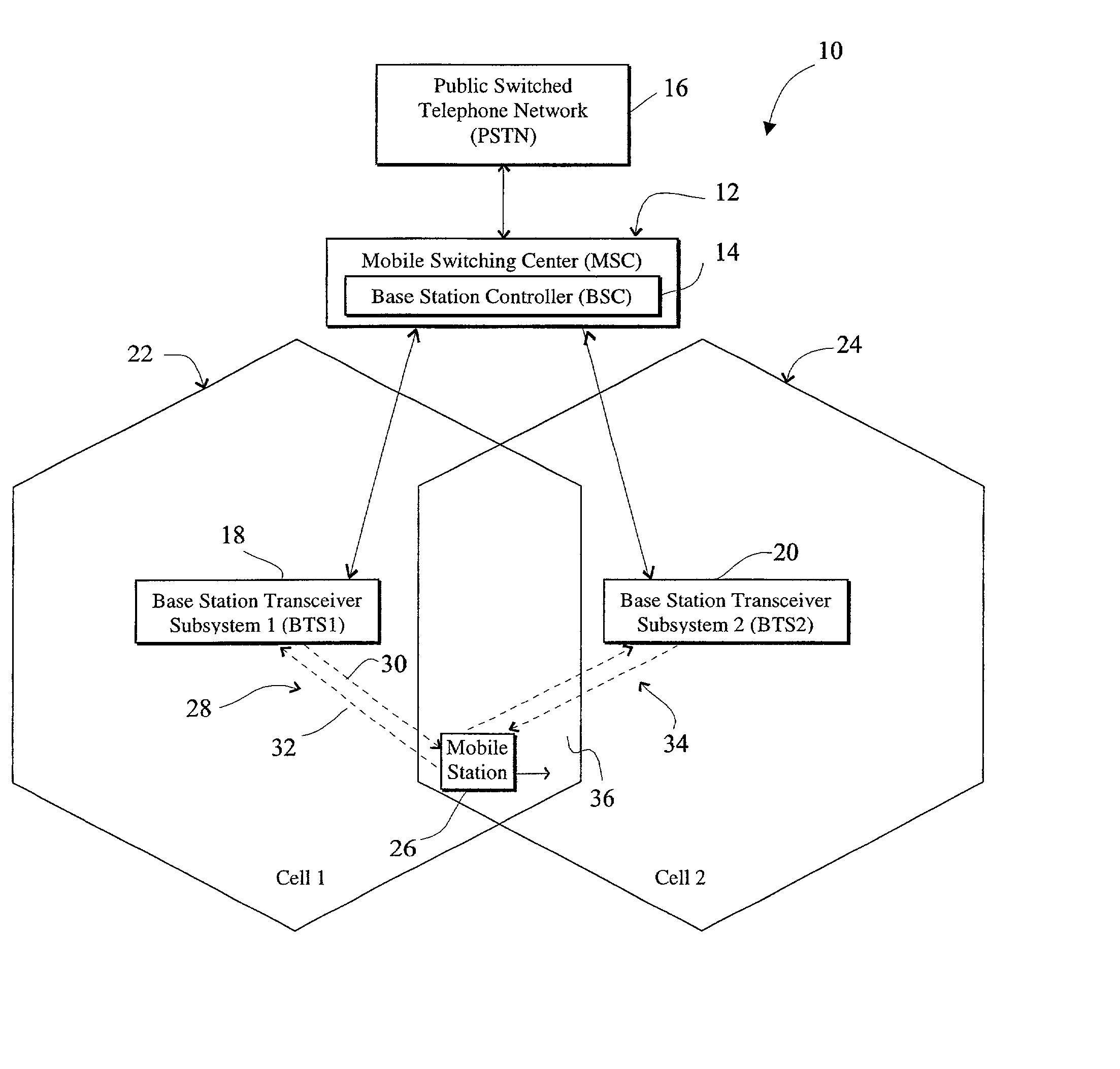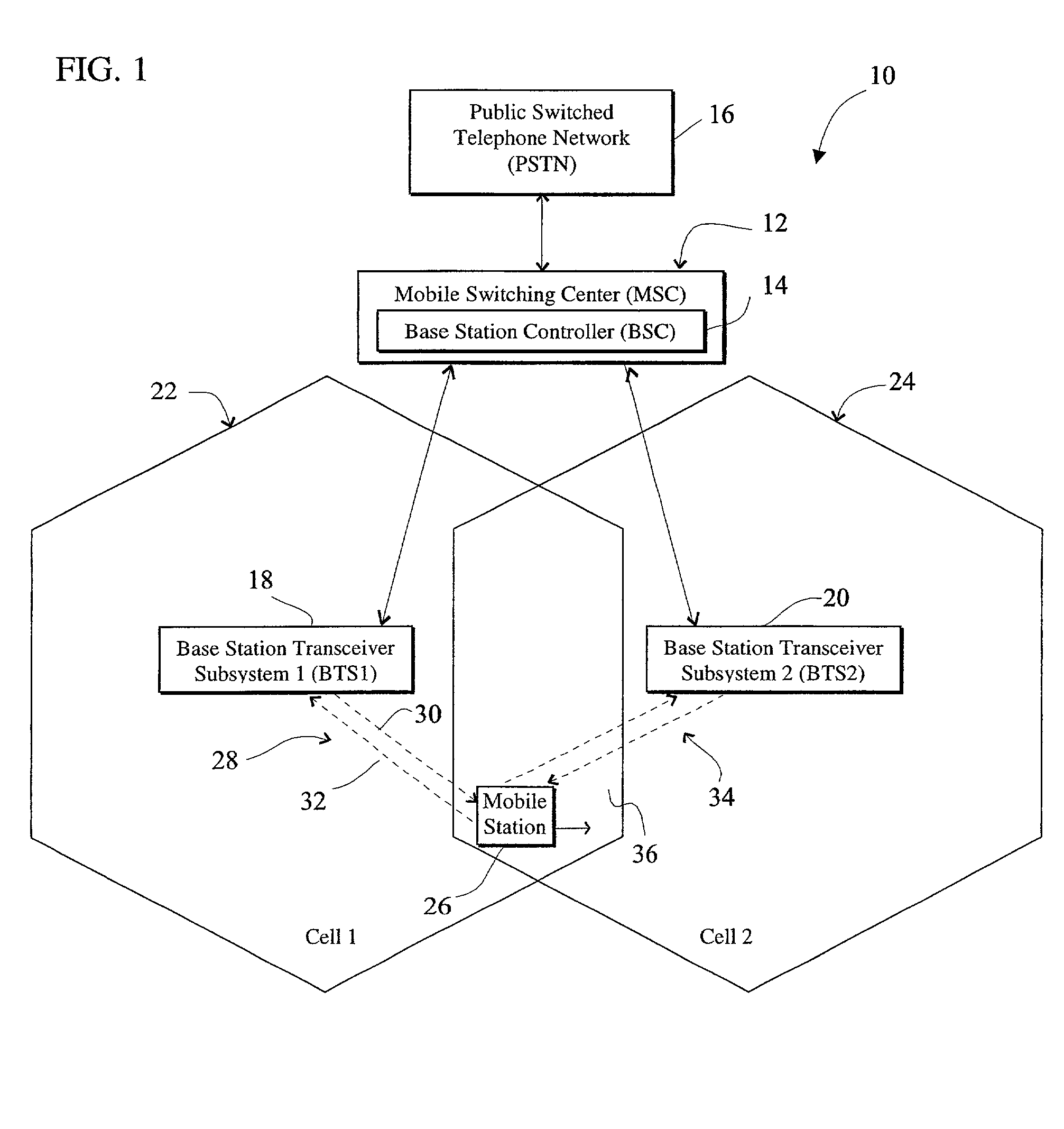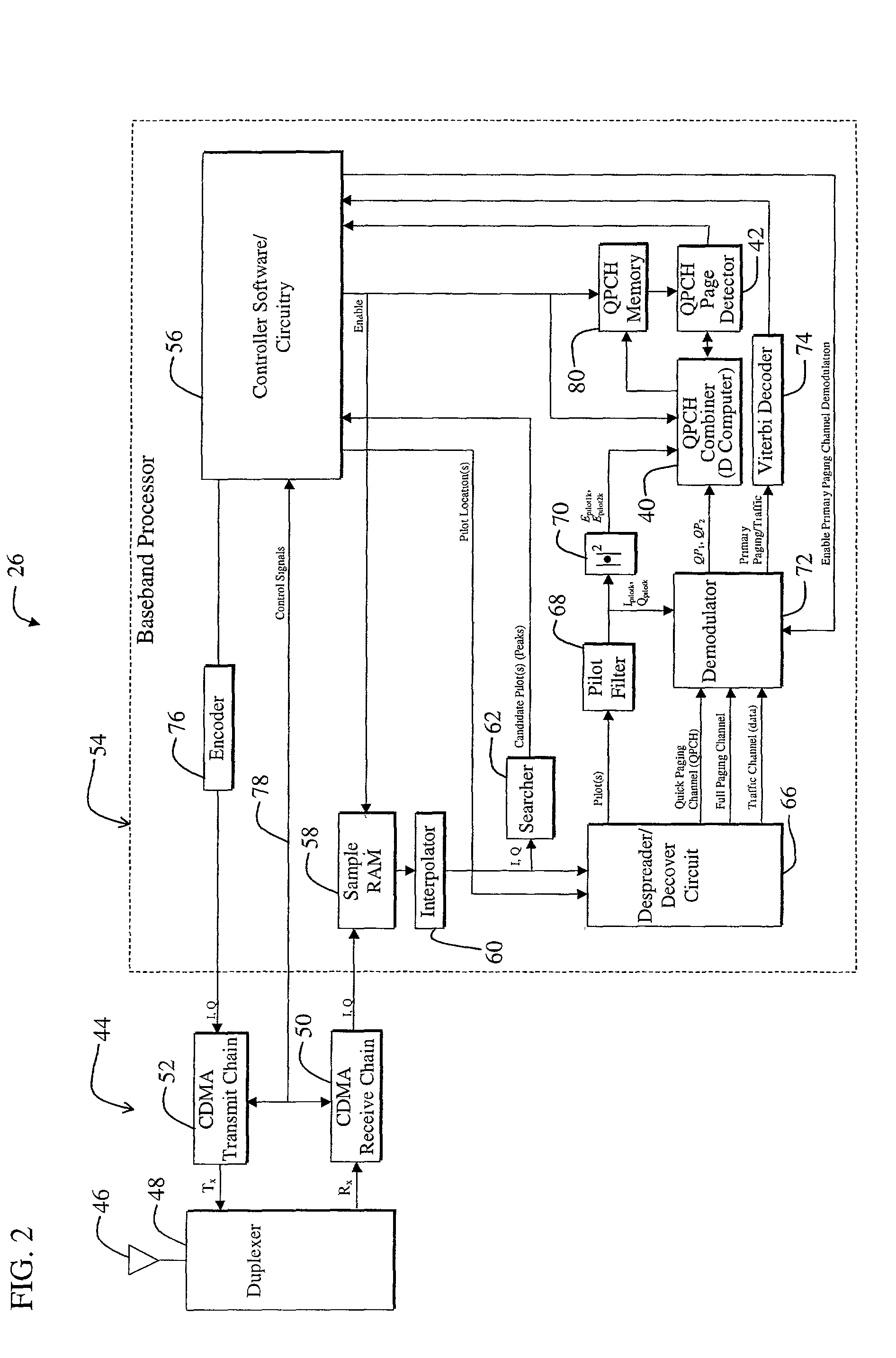Sequential combined QPCH demodulation
a combined qpch and frequency technology, applied in the field of wireless communication systems, can solve the problems of reducing the battery life and associated standby time, reducing the phone battery life and reducing the power consumption of the phone, and drawing excess power
- Summary
- Abstract
- Description
- Claims
- Application Information
AI Technical Summary
Benefits of technology
Problems solved by technology
Method used
Image
Examples
Embodiment Construction
[0022] While the present invention is described herein with reference to illustrative embodiments for particular applications, it should be understood that the invention is not limited thereto. Those having ordinary skill in the art and access to the teachings provided herein will recognize additional modifications, applications, and embodiments within the scope thereof and additional fields in which the present invention would be of significant utility.
[0023] FIG. 1 is a block diagram of an exemplary wireless communications system 10 for which the present invention is adapted. The system 10 includes a Mobile Switching Center (MSC) 12 having a Base Station Controller (BSC) 14. A Public Switched Telephone Network (PSTN) 16 routes calls from telephone lines and other networks and communications devices (not shown) to and from the MSC 12. The MSC 12 routes calls from the PSTN 16 to and from a first BTS 18 and a second BTS 20 associated with a first cell 22 and a second cell 24, respect...
PUM
 Login to View More
Login to View More Abstract
Description
Claims
Application Information
 Login to View More
Login to View More - R&D
- Intellectual Property
- Life Sciences
- Materials
- Tech Scout
- Unparalleled Data Quality
- Higher Quality Content
- 60% Fewer Hallucinations
Browse by: Latest US Patents, China's latest patents, Technical Efficacy Thesaurus, Application Domain, Technology Topic, Popular Technical Reports.
© 2025 PatSnap. All rights reserved.Legal|Privacy policy|Modern Slavery Act Transparency Statement|Sitemap|About US| Contact US: help@patsnap.com



